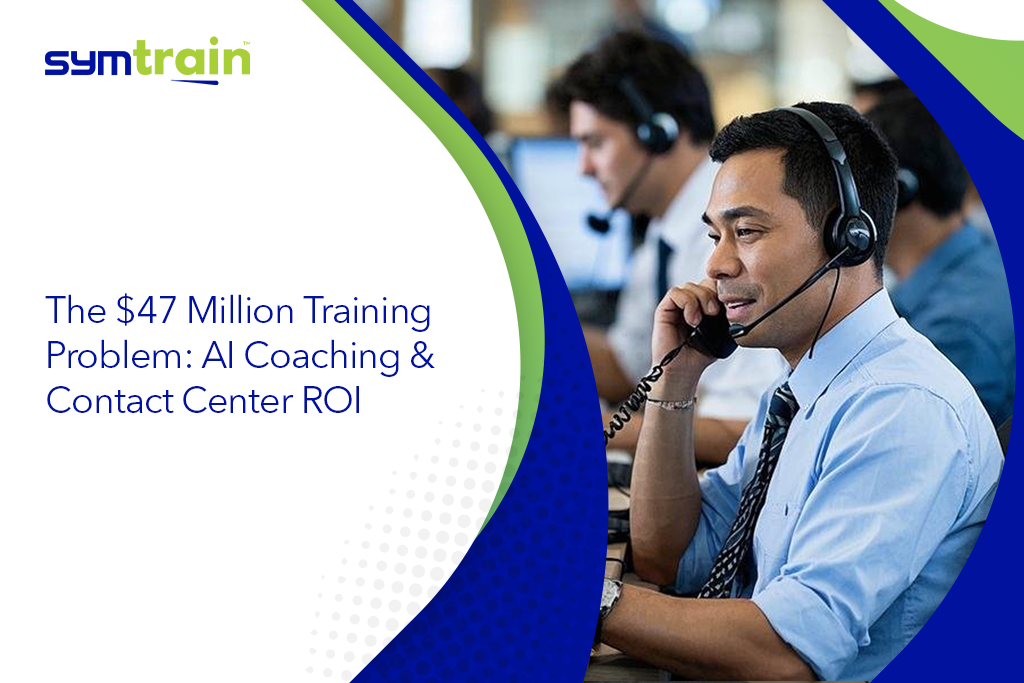Contact Center Lifecycle Revolution: Why Every Champion Needs a Coach

Michael Jordan had coaches throughout his career—youth league instructors, high school mentors, college guidance, and NBA professionals who helped him excel at every stage of development. Furthermore, the greatest athletes understand that different phases of their careers require specialized coaching approaches tailored to specific growth needs.
Your contact center agents follow a similar lifecycle journey from recruitment through retirement. However, most organizations treat this journey as a series of disconnected events rather than a comprehensive development pathway that requires expert guidance at every stage.
The Lifecycle Gaps That Sabotage Success
Every contact center follows the same basic agent lifecycle: recruitment, assessment, onboarding, skill development, performance optimization, career advancement, and retention. Furthermore, each stage presents unique challenges that determine whether agents thrive or struggle throughout their customer service careers.
The Disconnected Development Disaster: Most organizations treat recruitment, training, and performance management as separate functions with different systems, goals, and success metrics. Moreover, this fragmentation creates gaps where agents fall through cracks between lifecycle stages.
The One-Size-Fits-All Tragedy: Traditional approaches apply identical development methods regardless of where agents are in their career journey. Furthermore, new hires receive the same coaching style as five-year veterans, creating mismatched support that satisfies neither group.
The Reactive Management Problem: Organizations respond to performance issues after they become problems rather than providing proactive development that prevents challenges. Moreover, this reactive approach creates crisis management cycles instead of sustainable growth patterns.
The Measurement Misalignment: Different lifecycle stages are measured using inconsistent metrics that don't reflect the unique success factors for each development phase. Furthermore, this creates confusion about what excellence looks like at different career points.
According to Deloitte research on employee lifecycle management, organizations with integrated lifecycle approaches achieve 40% lower turnover and 33% higher revenue per employee compared to fragmented development systems.
The Championship Development Model: Coaching Excellence Across Every Stage
Elite athletes receive specialized coaching throughout their careers because different development phases require different expertise, focus areas, and success strategies. Furthermore, this systematic approach ensures continuous growth and peak performance at every career stage.
The Professional Sports Lifecycle Approach:
Talent Identification: Scouts identify natural abilities and potential before formal training begins Foundation Building: Youth coaches develop fundamental skills and proper technique habits
Skill Specialization: Advanced coaches help athletes master position-specific or sport-specific capabilities Performance Optimization: Elite coaches fine-tune technique and strategy for competitive advantage Peak Maintenance: Veteran coaches help established athletes sustain excellence and adapt to changing conditions Legacy Development: Mentor coaches help experienced athletes transition to leadership and teaching roles
Contact centers need identical systematic coaching that adapts to each agent's development stage and career objectives.
The Science of Lifecycle-Adapted Coaching
What makes stage-specific coaching more effective than generic development approaches? Furthermore, how do different lifecycle phases require different psychological, technical, and motivational support strategies?
Early Career Focus: New agents need structure, clear expectations, and confidence building through achievable challenges Mid-Career Development: Experienced agents require autonomy, specialization opportunities, and recognition of growing expertise
Advanced Career Growth: Veteran agents seek meaning, legacy building, and opportunities to contribute beyond individual performance
Skill Building Progression
Athletic development follows predictable patterns from basic motor skills to complex strategic thinking. Customer service careers require similar progressive development that builds complexity systematically.
Motivation Evolution
What motivates athletes changes throughout their careers—early focus on skill mastery evolves into competitive achievement, then transforms into legacy and contribution goals. Contact center agents experience similar motivational evolution requiring adapted coaching approaches.
Real-World Lifecycle Success: The Healthcare Industry Transformation
A major healthcare organization implemented comprehensive lifecycle coaching that supported agents from initial hiring through advanced career development, recognizing that medical customer service requires sophisticated skill evolution over time.
The Lifecycle Challenge: Traditional training created agents who could handle basic patient inquiries but struggled with complex medical billing issues, insurance claim disputes, and emotionally sensitive health-related conversations that required years of experience to master effectively.
The Championship Solution: They developed AI coaching that adapted to each agent's career stage—intensive foundational training for new hires, specialized skill development for mid-career agents, and mentorship opportunities for veterans.
Lifecycle-Adapted Coaching Components:
- Recruitment optimization identified candidates with healthcare service aptitude
- Intensive onboarding building medical terminology knowledge and empathy skills systematically
- Progressive specialization developing expertise in specific healthcare areas like mental health, chronic disease, or pediatric care
- Advanced problem-solving coaching for complex multi-system healthcare navigation and patient advocacy
Lifecycle Excellence Results:
- 89% improvement in patient satisfaction scores across all interaction types
- 67% reduction in agent turnover through comprehensive career development
- 54% increase in internal promotion rates from customer service to other healthcare roles
- $4.1 million annual value from improved patient retention and operational efficiency
- 92% agent satisfaction with career development opportunities and professional growth support
The Lifecycle Advantage: Like athletic development programs that create long-term success, comprehensive agent lifecycle coaching built sustainable excellence and career satisfaction that benefited both individuals and the organization.
The Economics of Lifecycle Investment
Comprehensive lifecycle coaching requires sustained investment but delivers exponential returns through improved retention, performance, and career development outcomes. Moreover, the benefits compound as agents progress through development stages.
Lifecycle ROI Analysis:
Traditional Fragmented Approach:
- High early-stage turnover: 40-60% attrition within first year
- Limited skill development: Agents plateau at basic competency levels
- Minimal advancement opportunities: 5-10% internal promotion rates
- Recruitment cycle repetition: Constant hiring and training costs
- Knowledge loss: Veteran expertise leaves with departing agents
Comprehensive Lifecycle Coaching:
- Sustained retention: 85-90% retention through comprehensive development
- Continuous skill advancement: Agents develop expertise and specialization
- Career progression: 40-60% internal advancement rates
- Stability and growth: Reduced recruitment needs and expanded capabilities
- Knowledge preservation: Veteran expertise captured and transferred systematically
Net Advantage: 500-800% superior ROI through lifecycle optimization and career development excellence
Ready to Build Your Championship Development Program?
Every great athlete has coaches who understand their development stage and provide appropriate guidance for continued growth. Moreover, your contact center agents deserve the same level of systematic, stage-appropriate coaching that creates successful, satisfying customer service careers.
How are you currently supporting agents throughout their entire customer service journey? Furthermore, what would it mean for your organization if every agent received coaching that adapted to their career stage and helped them achieve both personal and professional success?
The transformation begins with understanding how comprehensive lifecycle coaching can revolutionize your approach to agent development while building sustainable competitive advantages through engaged, growing teams.
Connect with SymTrain's team to explore how AI coaching can transform your complete agent lifecycle approach. Additionally, you can schedule a personalized consultation to discuss your specific lifecycle challenges and discover how championship-level development creates sustainable excellence.
The future of contact center success is comprehensive, lifecycle-adapted, and remarkably effective at creating career-long agent engagement and performance excellence. Moreover, it's already working for organizations that decided to treat customer service as a professional career worthy of systematic development investment. Will your contact center be next to achieve lifecycle coaching excellence?


